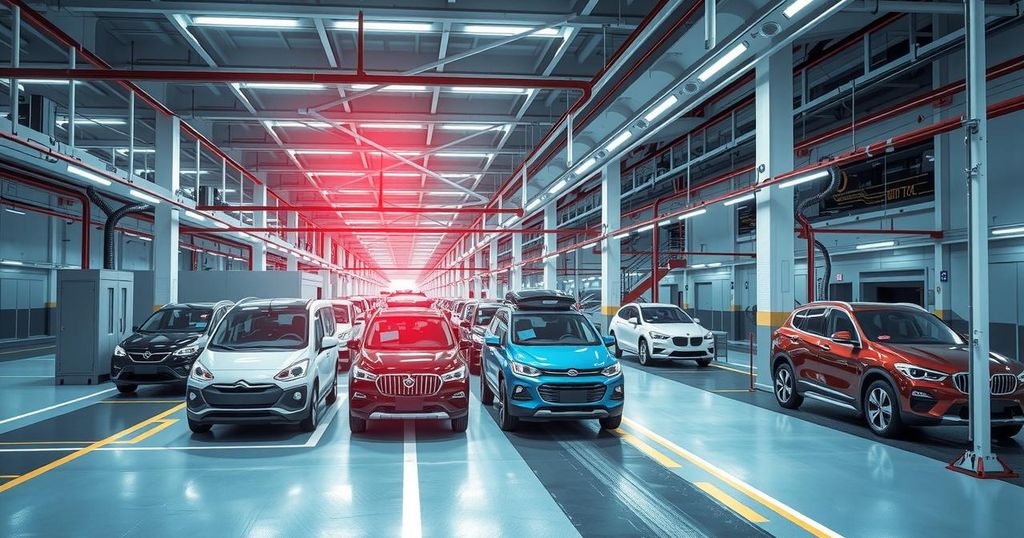Nigeria’s automotive market is grappling with rising costs and a new U.S. tariff of 25% on vehicle imports, impacting local dealers and consumers. With vehicle prices soaring by 400% in two years, affordability has become a major issue. Experts propose strengthening local manufacturing as a necessary strategy to mitigate these challenges and improve the situation.
David Tope, an established automotive importer in Nigeria, has found his business increasingly challenging due to significant import cost increases, primarily arising from currency depreciation and heightened duties. In 2023, he was importing up to five vehicles weekly but has since ceased his operations by early 2025. Tope highlights that not only is the national situation dire, but the inflation rates coupled with naira devaluation have rendered it nearly impossible for local businesses to import vehicles effectively.
As David Tope strategizes his next steps, the U.S. government has announced a forthcoming 25% tariff on vehicle imports, effective in April. Although aimed at U.S. imports, this policy is projected to negatively impact Nigeria’s automotive market, which significantly relies on the export of used cars from America. Tope emphasizes that if tariffs drive up the cost of vehicles in the U.S., the subsequent export price to Nigeria will also surge, exacerbating financial pressures on car dealers.
The repercussions of these tariff changes extend beyond importers; vehicle prices within Nigeria have skyrocketed by approximately 400% over the past two years, making car ownership exceedingly difficult for average consumers. Individuals like Emmanuel Aaron have found themselves postponing vehicle purchases due to the soaring prices. Similarly, Akintunde Akinmolaye acknowledges the quality of U.S. vehicles but is deterred by the current costs.
Economist Hauwa Mustapha warns that a 25% tariff from the U.S. may dramatically alter Nigeria’s auto landscape. Should the U.S. concentrate on domestic production, it could result in fewer used vehicles available for export, inevitably inflating prices in Nigeria. The import sector, which supports numerous livelihoods—from importers to mechanics and transport workers—is also under threat.
While Nigeria’s automotive production stands at merely 14,000 vehicles per annum—far below market demand—experts advocate for enhancing local manufacturing capabilities as a sustainable solution. Mustapha contends that revitalizing the steel industry is crucial. To foster higher production levels of locally assembled vehicles, it is imperative to strengthen Nigeria’s underlying infrastructure. Currently, importers like Tope are left in a state of uncertainty, awaiting further developments.
In conclusion, Nigeria’s auto market is facing significant challenges due to rising import costs and a forthcoming tariff from the United States. This development threatens not only the livelihoods of importers but also the affordability of vehicles for consumers. Experts emphasize the urgent need to enhance local manufacturing capabilities as a viable long-term solution to these issues.
Original Source: www.voanews.com






